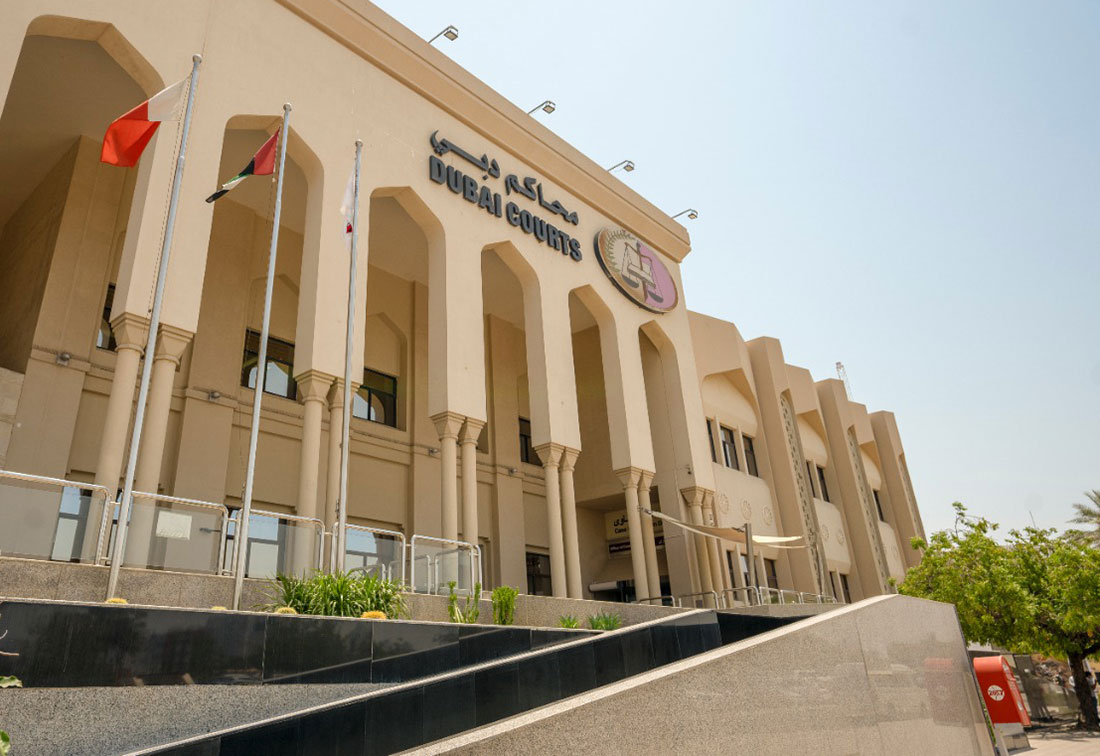Our office has previously applied to the Abu Dhabi Court of Cassation to reconsider a criminal judgment issued by it in a criminal case, invoking the provisions of Article 1, paragraph (5) of the Criminal Procedure Code. This article affirms the applicability of the Civil Procedure Code unless there is a specific provision in the Criminal Procedure Code. Consequently, this allows for the application of Article 190 of the Civil Procedure Code to final criminal judgments, permitting the Court of Cassation to reconsider its decision issued in a chamber or its final ruling if any of the conditions exclusively outlined in that article are met. The Court of Cassation decided to accept the request both procedurally and substantively, allowing the reconsideration of the judgment in question. This implies the permissibility of reconsidering final criminal judgments issued by the Court of Cassation.
In the same context, our office submitted a request for reconsideration of a criminal judgment issued by the Dubai Court of Appeal, citing the presence of one of the conditions specified in Article 190 of the Civil Procedure Code. This is based on the text of Article (1), paragraph (5) of the Criminal Procedure Code. However, the Dubai Court of Appeal decided against the admissibility of reconsideration for final criminal judgments, arguing that the provisions of Article 190, Civil Procedure Code, apply only to decisions and judgments issued by civil chambers, not criminal chambers; Given that the legislator explicitly stated in the aforementioned text of Article 190, that the court has the authority to reconsider a decision issued by it in an advisory chamber. This provision does not extend to judgments issued by criminal chambers since criminal appeals are not filed in an advisory chamber. Furthermore, the legislator's discourse is directed solely towards decisions and judgments issued by civil chambers. Any assertion to the contrary is considered a violation of the law and an unwarranted interpretation, given that it goes against the explicit text and represents an unwarranted expansion in its interpretation. Considering that the text of Article 190, Civil Procedure Code, is an exception that should not be expanded upon, and furthermore, the criminal judgment issued by the Court of Appeal can only be reconsidered in cases of a request for review.
Furthermore, the legislature's language is directed specifically at decisions and judgments from civil chambers, and any contrary interpretation would be a violation of the law and an unwarranted expansion of its meaning. Additionally, it was emphasized that the criminal judgment issued by the Court of Appeal can only be reconsidered in cases of a request for review.
Thus, it becomes clear that the conflict between the principles stems from the disagreement over the application of Article 190 of the Civil Procedure Code to requests for reconsideration in criminal matters. The Court of Cassation, along with the Federal Supreme Court leaned towards allowing the reconsideration of final criminal judgments, while the Dubai Court of Appeal took the opposite stance, stating that reconsideration of the final criminal judgment issued by it is not permissible.
In light of this contradiction, our firm submitted a request to the Federal Attorney General, urging him to present it to the Judicial Principles and Local Unification Committee. In turn, he will present it to the Judicial Principles and Local Unification Committee. to unify the conflicting principles issued by the Court of Cassation in Abu Dhabi and the Dubai Court of Appeal, as outlined in the attached statement. This committee is responsible for unifying conflicting final judicial principles issued by two or more high courts in the country on a single issue. Whereby the two principles have clashed at the time of submitting the request, making it difficult to favor one over the other and necessitating their simultaneous implementation. This requires the committee to settle this conflict by either prioritizing one conflicting principle over the other or reconciling them in terms of their legal impact on disputes related to these conflicting principles.
Based on this request, the Federal and Local Judicial Principles Unification Committee decided to favor the principle of allowing reconsideration of final judgments issued by high courts in criminal matters. This decision was made to achieve justice, rectify certain flawed final judgments, and unify the legal stance. In fact, Paragraph (5) of Article 1 of the Criminal Procedure Code has allowed the application of the provisions of the Civil Procedure Code in the absence of a specific provision in the Criminal Procedure Code, considering that the Civil Procedure Code is the general law governing procedural matters.
Provided that, reconsideration of judgments issued by the Court of Appeal is not an exception but rather a means of judicial reform, a practice embraced by the UAE legislator, similar to Arab and comparative legal systems in many countries. Consequently, it is not limited to civil judgments but also includes criminal judgments. Finally, the judicial system of the United Arab Emirates has settled on adopting the system of reconsidering final judgments issued by the high courts in both civil and commercial matters, even before formalizing the reconsideration system in the Civil Procedure Code.
Consequently, the Federal and Local Judicial Principles Unification Committee approved the principle affirming the permissibility of reconsideration in criminal judgments, a principle our firm asserted in its reconsideration request submitted to the Court of Appeal and subsequently presented to the Federal Attorney General for review.
Authors:
Adv.Ali Ismail Al-Zarouni
Managing partner
+971 50 631 4431
Sabri Al Khawas
Associate

